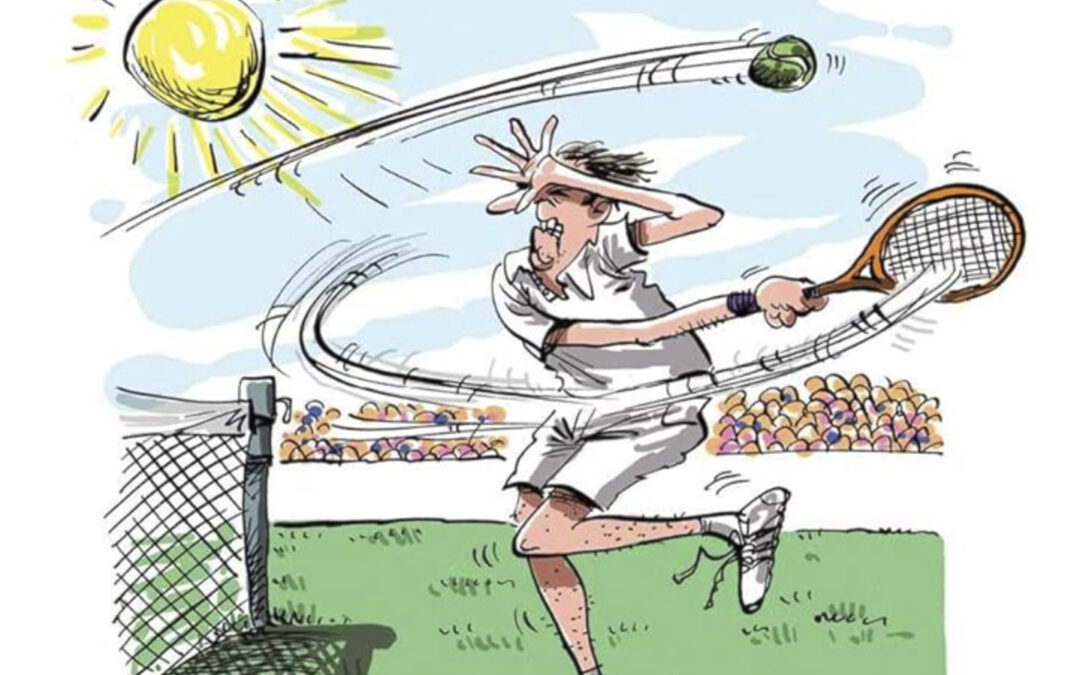Yes, it is my fault and that’s why I need real hope.
Not My Fault is the title of a book on tennis excuses written by Joshua Shifrin. It contains “150 hilarious excuses every tennis player should know” that may be used to rationalize a variety of errors on the tennis court and absolve the player from shame. With a ready supply of “not my fault” excuses, I don’t need to rely on hope to make me feel better about a game gone bad.
On the other hand, to be honest with myself, errors or faults are mostly my doing. What I really hope is that my next match will be more favorable. And this leads us to a short discussion of the word “hope.”
There are two distinct uses of the word. There’s “I hope I don’t double fault.” This version suggests that, while I would like a certain outcome, I have a strong sense that it will not occur—hello, double fault. Another, common version in my household is, “I hope the grandkids will call.” This is superficial hope.
Christian hope is entirely different. It is deep, mature, and has gravitas. It also has several facets. One basic facet is “a strong and confident expectation.” A second is that it is based on the nature of the person of God, a characteristic to be trusted. And a third facet is that it is rooted in believing without seeing and often involves patient waiting for extended periods. In Biblical terms, this runs from hundreds to thousands of years.
I may hope to improve my tennis game. I may hope to play better the next day. This type of hope keeps me going, but it is mostly wishful thinking. It may be delusional.
Moving now to my life outside of tennis, I commit many faults and they are without excuses. There is no “It’s Not My Fault” book to make me fell better, although libraries are filled with books, and social media drips with messages, that attempt to shunt blame away from myself.
There is a book, however, and it is called the Bible, that states emphatically and unequivocally that it is my fault when I fail to do what is right, when I fail to love my neighbor, and when I break my relationship with God. But unlike the tennis book, it promises and provides a pathway, and shines a light upon, renewal, healing, and, yes, improving my spiritual game.
Hoping in the promises of God is altogether different from hoping not to double fault. This true hope strengthens me in my daily journey and, unlike wishful thinking, I also have confident expectations. I am confident that I can change, that I will be a better person. I am confident that I can carry on through difficulties, pain, setbacks, and disappointments because a Friend is always by my side. I am confident that the promises of God and what has been foretold will come to pass.
If I do falter, it is indeed my fault and my fault alone. But, I do have the hope—the confident expectation—that the fault will be erased and the promise of a better life awaits.
Photo credit: Book Cover



Thanks so much for this inspiring reflection on hope, Don!
Peace,
Fr. Joe
I appreciate your words and support that inspire. me.